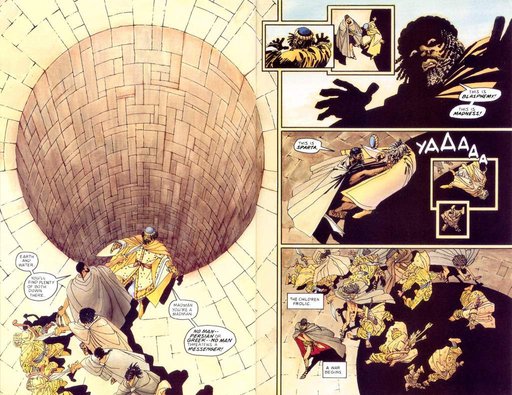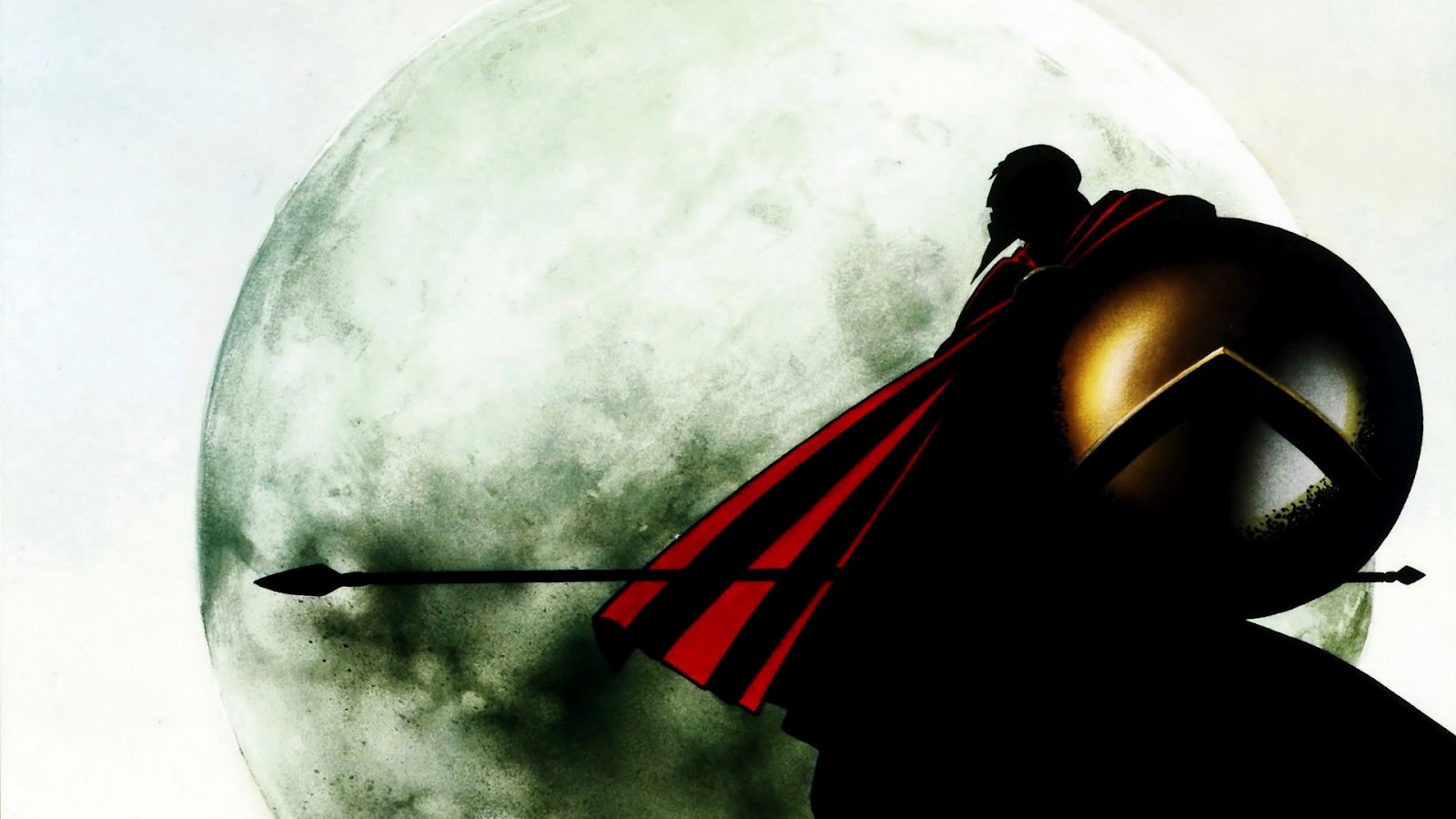


Leonidas subsequently walks north with his retinue until meeting-supposedly by happenstance-other soldiers assembling for the defense of Greece. The queen, sensing his motive, insists his entire personal bodyguard, numbering three hundred, accompany him. Prevented from mobilizing the Spartan army, Leonidas determines to take a walk through the countryside.

Leonidas, stymied, returns to Sparta without realizing the Persians have successfully bribed the corrupt ephors. In turn the ephors consult the mystic oracle, a young girl, who demands the Carneia, a religious festival, be observed and insists that no Spartan army mobilize during the religious period. Leonidas desires to sally against the Persians with the entire Spartan army but, as required by law, first seeks the advice and consent of the ephors-the elders of Sparta.

The following year news of a massive Persian invasion reaches Sparta. The envoy demands a token gesture of subjugation to Xerxes-Leonidas refuses to be so abased and kills the envoy and his retinue. After reigning for many years Leonidas receives the envoy of king Xerxes of Persia. The wolf pursued Leonidas until its movement was severely restricted whereupon the boy killed the wolf, returning victorious to Sparta where he was eventually to become king. Tracked by a huge wolf, Leonidas crafted a flimsy spear and lured the wolf into a narrow fissure in a cliff. Joined by about 6,700 other warriors from various Greek cities, Leonidas and his three hundred hold off several assaults by the Persians until eventually they are betrayed.Īs a young boy of perhaps ten years, Leonidas, like all Spartan boys, had been driven into the wilderness, alone and unarmed, to test his strength and cunning. Prevented by oracular pronouncement from taking the entire Spartan army, Leonidas is fully aware that the mission is suicidal. Leonidas, king of Sparta, leads a small force of three hundred men-his personal bodyguard-to a place known as the Hot Gates to meet a numberless horde of hostile Persians in combat.


 0 kommentar(er)
0 kommentar(er)
